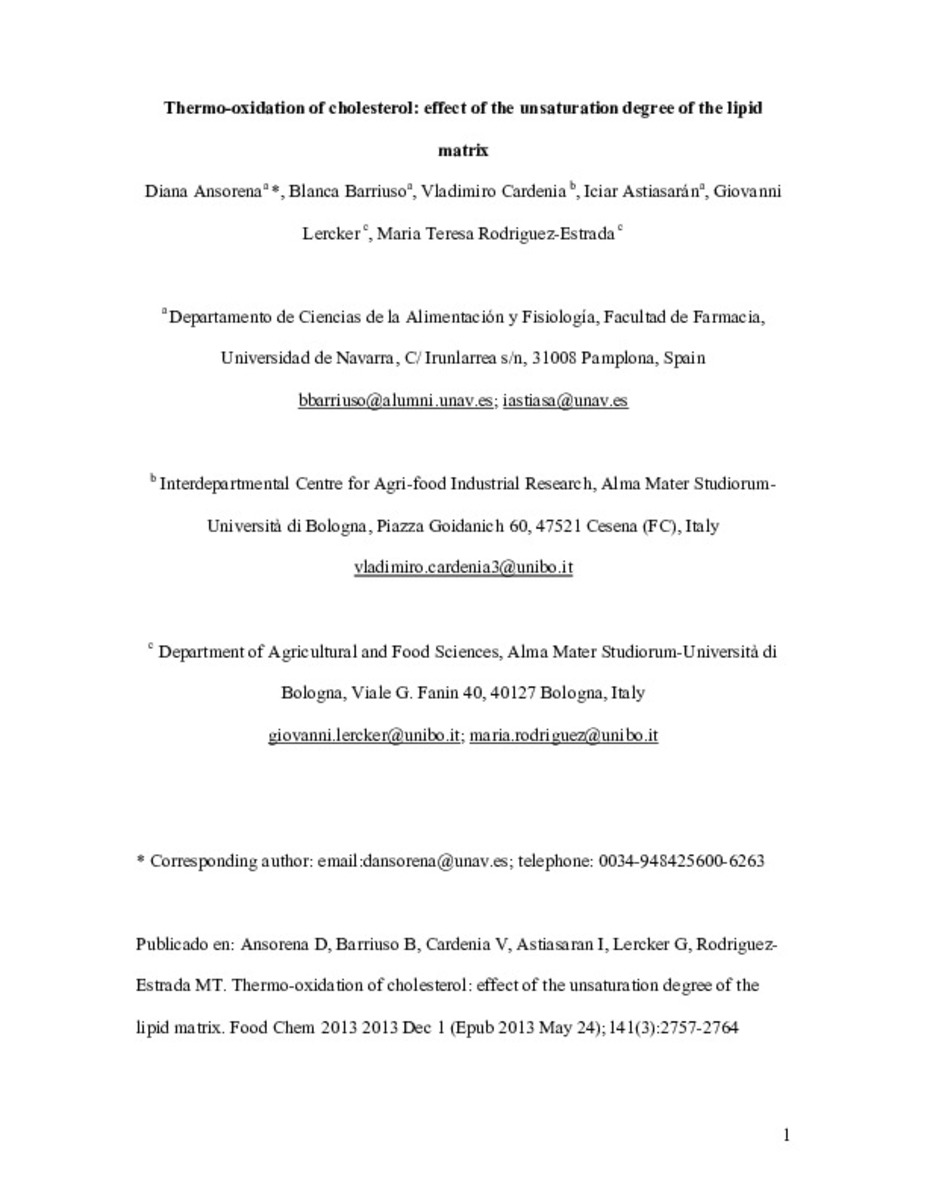Thermo-oxidation of cholesterol: effect of the unsaturation degree of the lipid matrix
Palabras clave :
Thermoxidation
Cholesterol
Triacylglycerols
Unsaturation degree
Peroxides
Fecha de publicación :
2013
Cita:
Ansorena D, Barriuso B, Cardenia V, Astiasarán I, Lercker G, Rodriguez-Estrada MT. Thermo-oxidation of cholesterol: Effect of the unsaturation degree of the lipid matrix. Food Chem 2013 DEC 1;141(3):2757-2764
Aparece en las colecciones:
Estadísticas e impacto
0 citas en

Los ítems de Dadun están protegidos por copyright, con todos los derechos reservados, a menos que se indique lo contrario.











